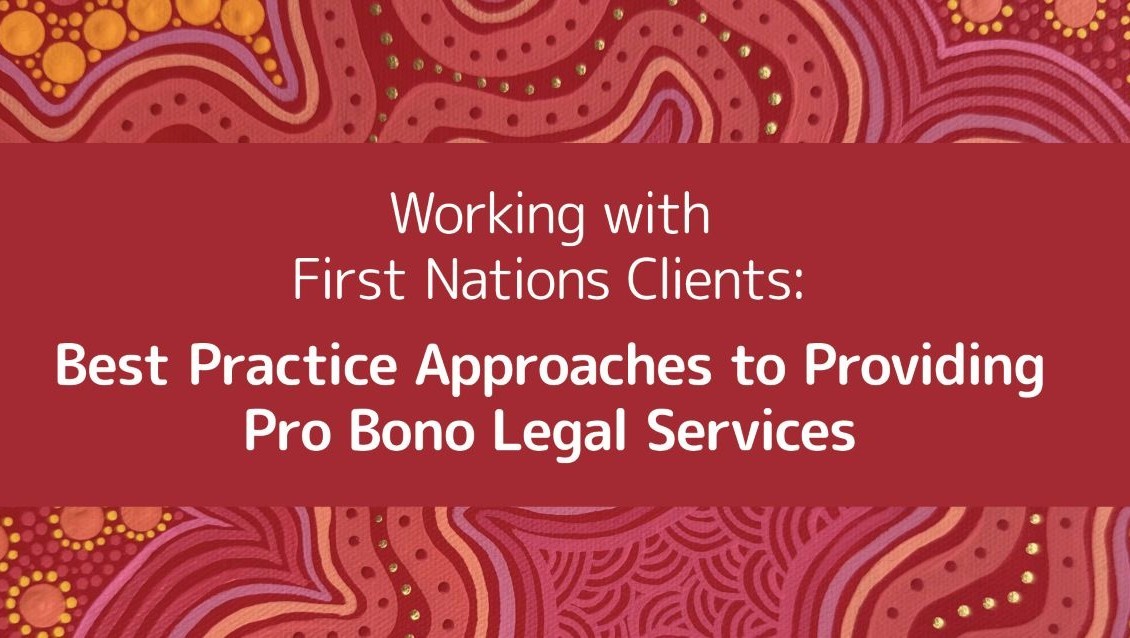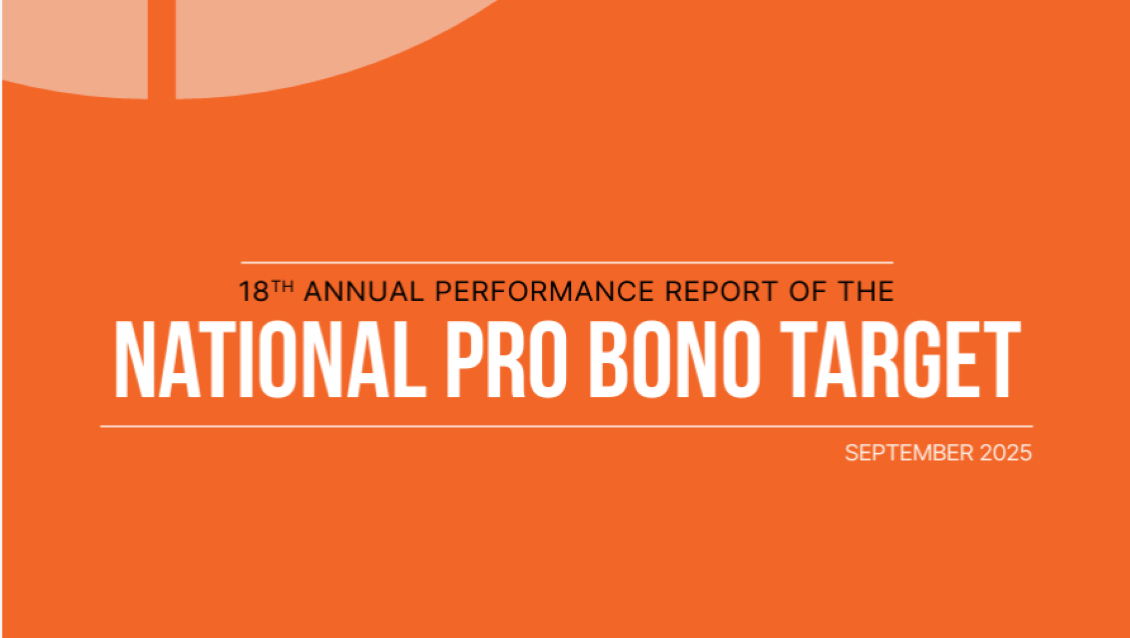
Working with First Nations Clients: Best Practice Approaches to Providing Pro Bono Legal Services

Pro bono legal work can play a meaningful role in addressing unmet legal need.
‘Pro bono’ comes from the Latin phrase pro bono publico, which means ‘for the public good’. In the legal context, it generally means the provision of legal services for free or at a substantially reduced fee to those who would not otherwise be able to access the legal system, or whose matter raises an issue of public interest. It includes legal assistance provided for free or at a substantially reduced fee for not-for-profit organisations that ‘work for the public good’. While there is no universally accepted definition of what is meant by ‘pro bono’, the definition of ‘pro bono legal services’ adopted by the Australian Pro Bono Centre (APBC) is widely accepted in Australia. Pro bono legal work can take many forms, including providing legal advice, court representation and providing community legal education.
Many pro bono practices across the country have developed a focus on supporting First Nations individuals and organisations, a trend that is reflected in the APBC’s 2024 Biennial National Pro Bono Law Firm Survey results. This reflects, in part, a broader shift among legal services providers to interrogate their role in advancing justice for First Nations peoples.
Ensuring this work is done appropriately and safely is a professional and ethical obligation and a critical step in addressing institutional inequality. Increasingly, firms and legal teams are partnering with First Nations controlled organisations, engaging First Nations businesses to deliver cultural safety and allyship training and employing First Nations lawyers to lead or inform their pro bono work with First Nations clients. The expertise of First Nations lawyers, combining legal training with lived experience, is invaluable in ensuring that this work maintains cultural integrity and authenticity.
This Guide seeks to provide information to support lawyers and law firms to deliver respectful, effective and culturally safe pro bono practices in partnership with First Nations clients and communities. Importantly, this Guide is grounded in the lived experiences of First Nations peoples, as well as insights from pro bono practitioners and existing best practice resources.







